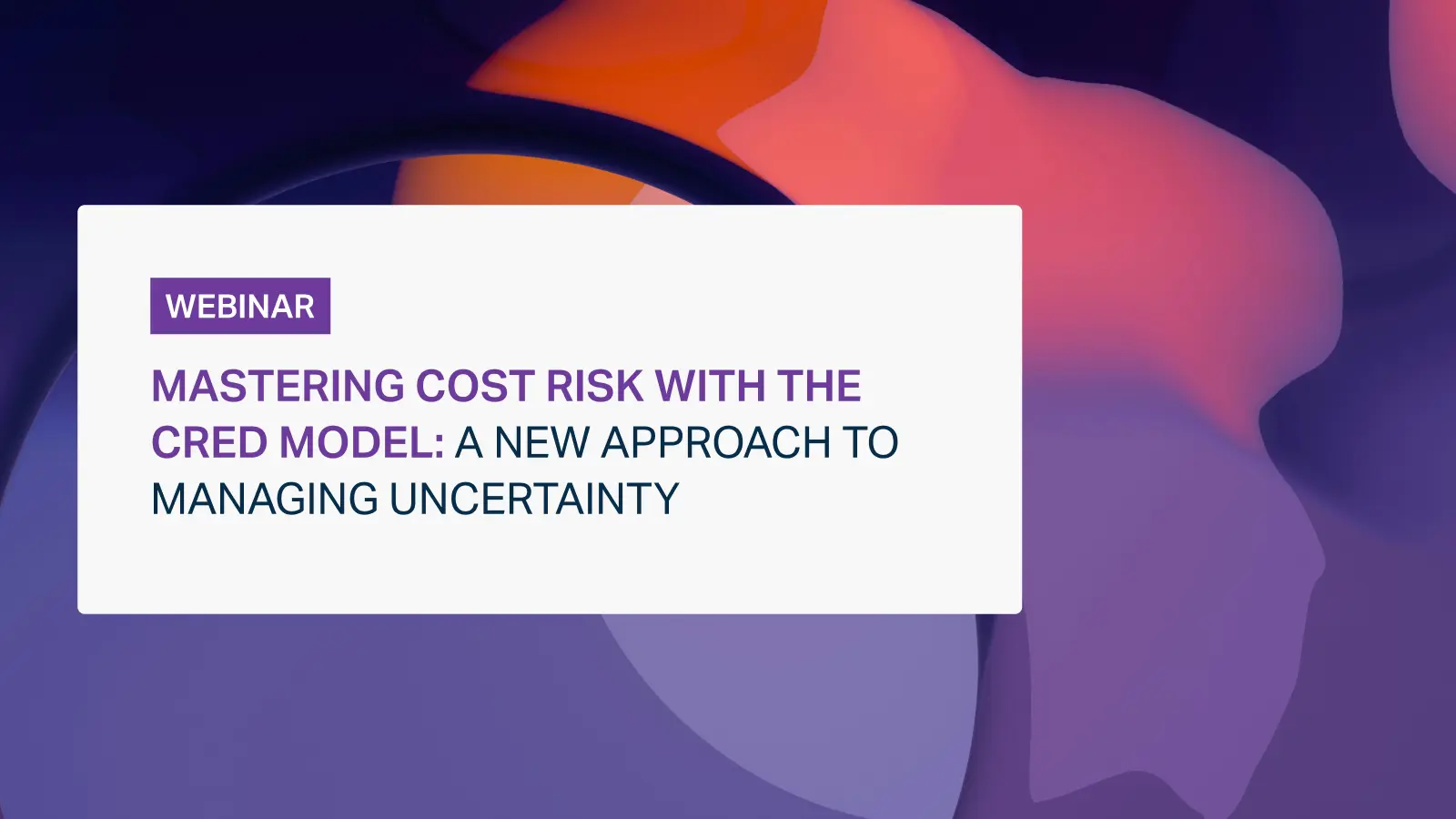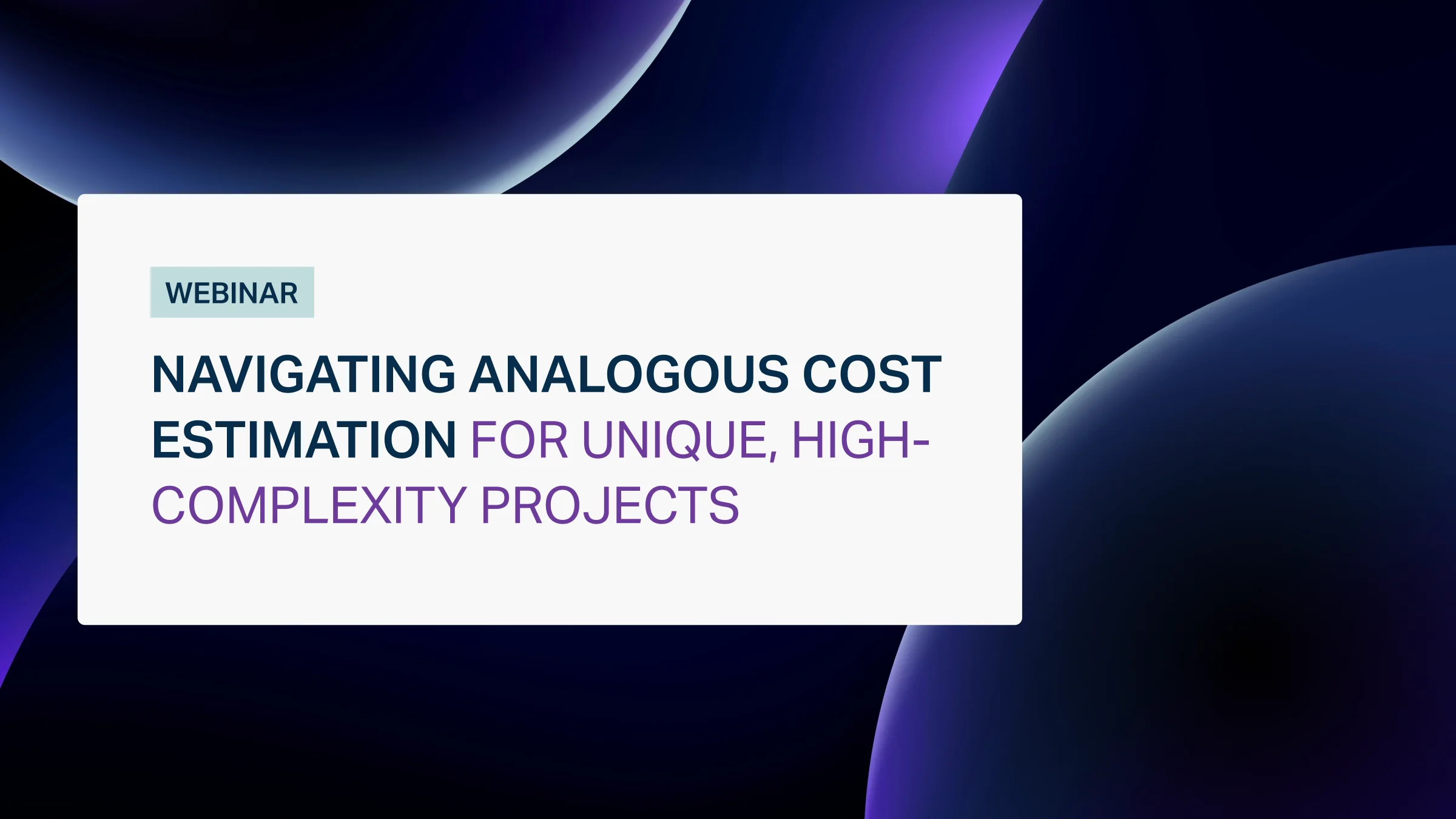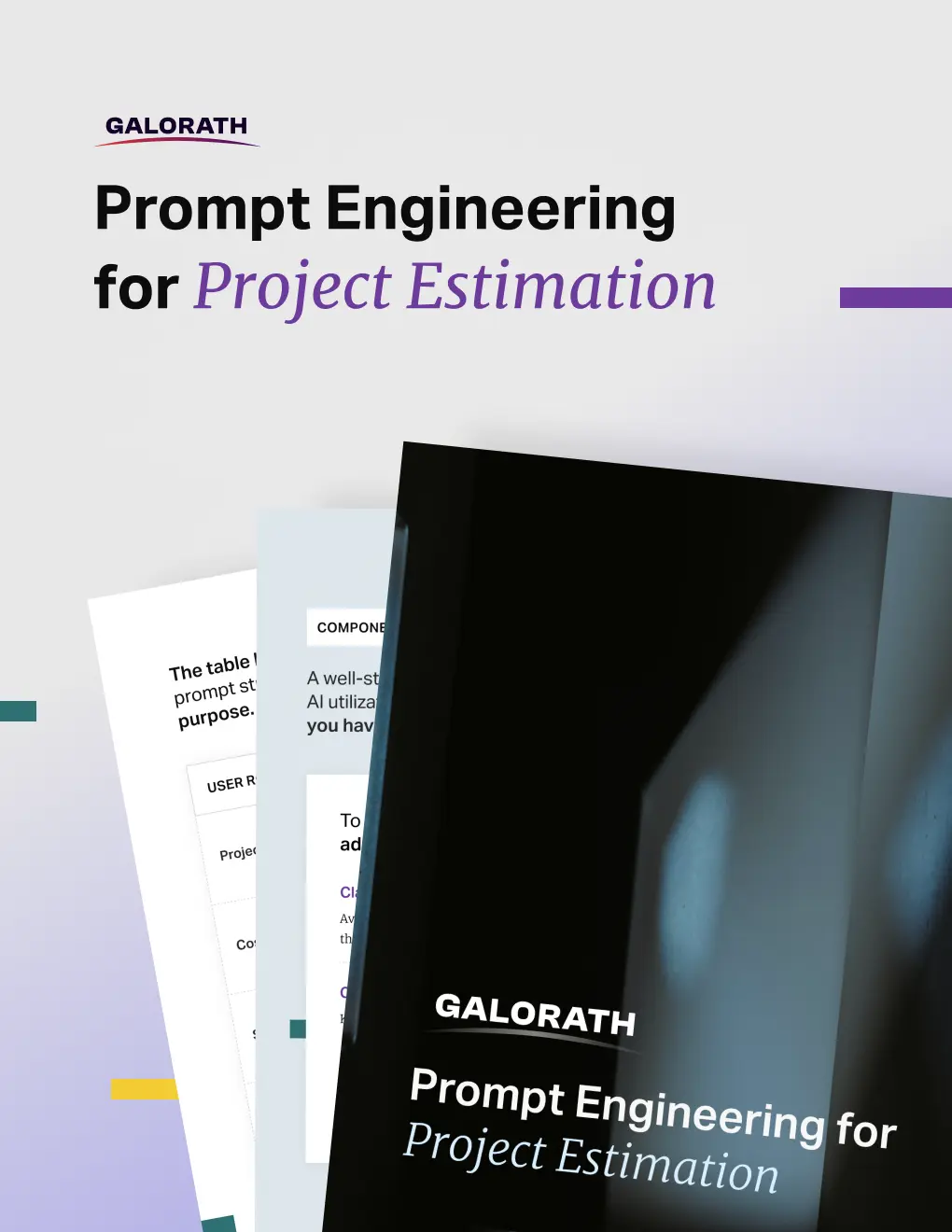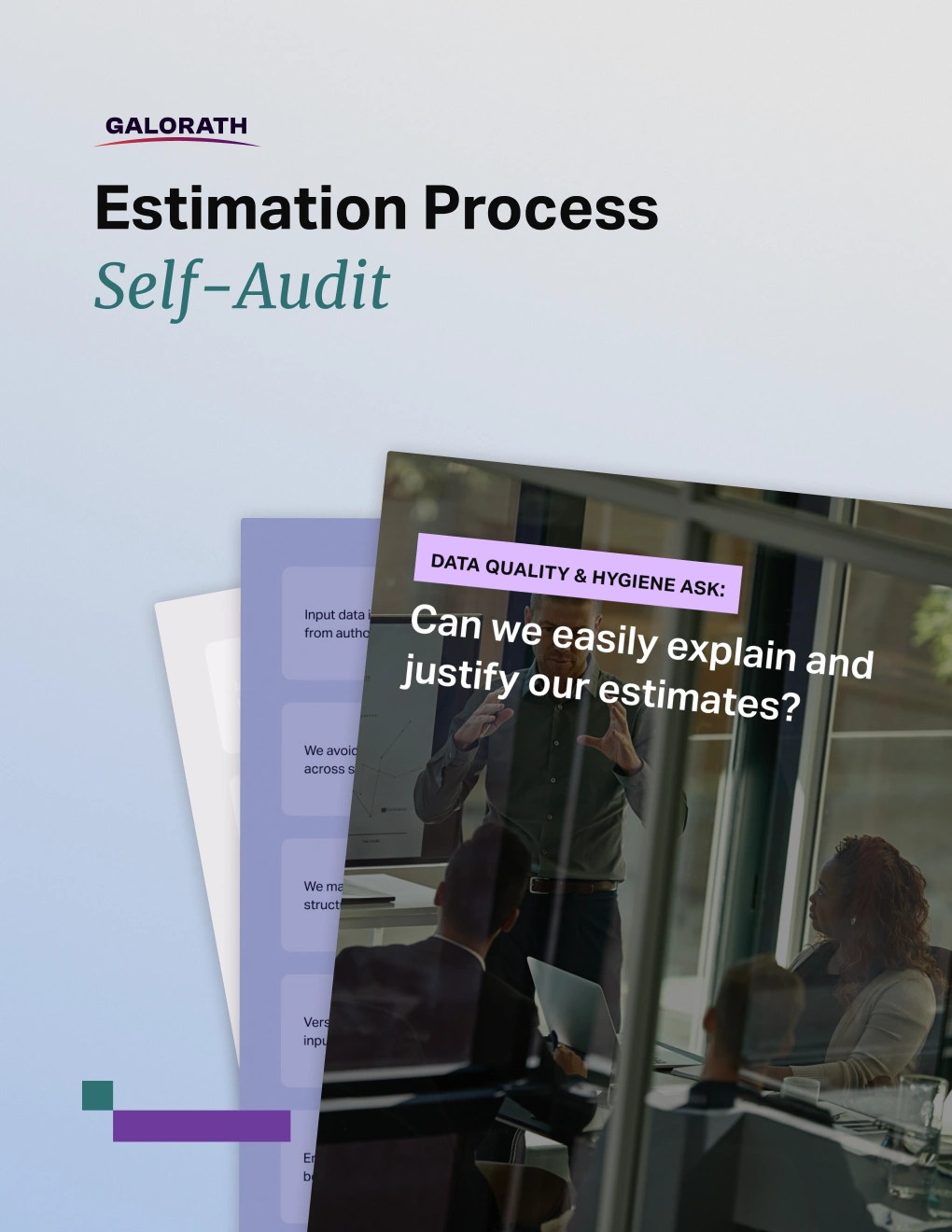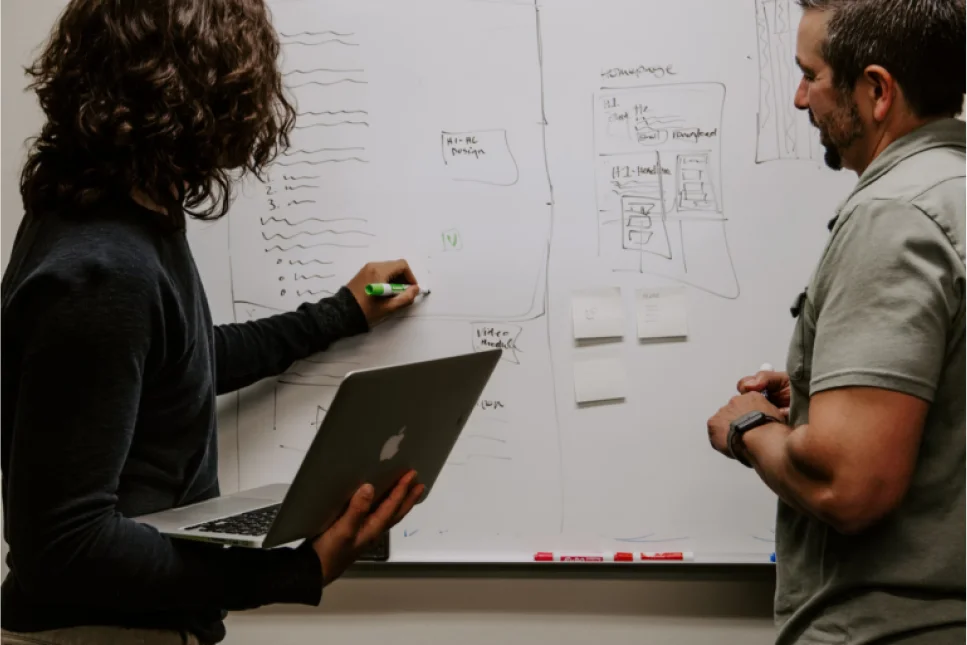Mastering Cost Risk with the CRED Model: A New Approach to Managing Uncertainty

Managing a project successfully means juggling several crucial elements, like scope, deadlines, and budget. While each plays a vital role, having an accurate cost estimate is essential for resource allocation, preventing overspending, and ensuring the project runs smoothly from start to finish. It’s more than just crunching numbers; it’s about making sure project managers the tools they need to make smart decisions, avoid unnecessary costs, and confidently lead the team.
At Galorath, we understand how closely cost estimation and project management are linked. Together, they provide the structure that keeps projects moving forward without surprises. Let’s explore how these two disciplines combine to make projects more efficient and successful.
Table of Contents
Why Cost Estimation is a Game-Changer in Project Management
Any project, big or small, follows a natural progression—from the early planning stages to execution and, eventually, completion. However, what happens in the planning phase often determines whether a project will succeed. At the core of this phase is cost estimation. Without it, project managers may struggle to allocate resources effectively, and the chances of running into budget issues or delays increase significantly.
When done right, cost estimation helps predict how much financial investment a project will need from start to finish. It’s not just a budgetary exercise; it’s a critical step that helps prevent misallocation of resources and gives managers a clearer picture of how to guide the project through to completion.
How Cost Estimation Supports Effective Project Management
- Better Planning: Solid cost estimates allow project managers to plan realistically. When managers know the expected expenses, they can set more practical schedules and distribute resources where they’re needed most, leading to fewer surprises along the way.
- Managing Risks Early On: By understanding the financial requirements, managers can identify potential risks early. This insight makes it easier to create contingency plans and reduce the impact of unforeseen expenses, keeping the project within scope and budget.
- Staying on Budget: One of the biggest responsibilities of any project manager is ensuring the project doesn’t go over budget. Cost estimation acts as a financial guide throughout the entire process. Regularly comparing actual costs to projected estimates helps managers keep spending in check and make adjustments before things go wrong.
Cost Estimation Techniques That Work
Different methods are used to estimate costs depending on the nature of the project. Some projects require quick estimates, while others benefit from a more detailed analysis. Here are a few common approaches:
- Analogous Estimation: This method uses data from similar past projects to predict future costs. It’s often used early when detailed information is still being gathered.
- Parametric Estimation: With parametric estimation, costs are calculated based on specific variables, such as cost per unit or hours of labor. It’s a more data-driven approach and works well when enough detailed information is available.
- Bottom-Up Estimation: This technique breaks the project into smaller, more manageable parts. Each component is estimated individually, and the totals are added to provide a comprehensive project estimate. Though more time-consuming, it’s often highly accurate.
- Three-Point Estimation: This method considers three different outcomes: the best-case, worst-case, and most likely scenarios. By averaging them, managers get a more balanced and realistic estimate of the project’s financial needs.
Maximizing Success by Combining Cost Estimation and Project Management
When these two practices are tightly integrated, project managers are better equipped to set realistic goals, anticipate challenges, and maintain control over the budget. At Galorath, we’ve developed methodologies that allow project managers to use data effectively, ensuring they can make well-informed decisions throughout the project’s lifecycle.
In the end, accurate cost estimates aren’t just helpful—they’re critical. They provide clarity and structure, allowing managers to navigate project management challenges with greater precision and confidence.
10-Step Estimation Process Checklist
View our 10 Step Estimating Process Checklist. This checklist should be tuned to the individual company’s needs and suggestions.
Estimating Total Cost of Ownership (TCO)
Find out how you can use Total Cost of Ownership (TCO) model to create an estimate which includes all the costs generated over the useful life of a given application.
Should Cost Analysis
Learn how Should-Cost Analysis can identify savings opportunities and drive cost efficiency in procurement and manufacturing processes.
ROM Estimate: The First Step Towards a Detailed Project Plan
Find out what ROM (rough order of magnitude) estimate is and why is it a crucial element of every project planning cycle.
Software Maintenance Cost
Find out why accurate estimation of software maintenance costs is critical to proper project management, and how it can make up to roughly 75% of the TCO.
